How Russia Disguises Itself To Return Its Oil and Gas to Europe — And How To Stop It
As a result of its aggression against Ukraine, EU sanctions and Europe's decarbonization policy, Russia has largely lost the EU oil and gas markets. Asian markets cannot replace the EU market. The war budget needs more and more revenue. It depends on the export of oil, oil products and natural gas to fill it. These exports are the perpetuum mobile of both Russian aggression against Ukraine and Russia's subversive activities in Europe.
The Kremlin is currently developing strategies to return Russian oil and gas to the EU market — variants of hybrid schemes, when Russian oil and gas will reappear on the EU market disguised as a formally non-Russian resource.
Today, there are three options for such a return of Russia to the “lost paradise” in Europe: “Hungarian oil” and “Azerbaijani gas” for Central Europe in transit through Ukraine and, in the future, “Qatari oil” for Germany in transit through Poland.
In wartime, for Ukraine, which is facing external aggression, it is important to minimize the inflow of revenues to the aggressor's budget, among other tasks. This means that the flow of money from the EU market to Russia from oil and gas exports should be prevented.
Oil transit
Oil from the Russian Federation is transported via the Druzhba pipeline through Belarus and Ukraine, mainly to Hungary and Slovakia, whose refining facilities are owned by the Hungarian MOL Group, as well as to the Czech Republic, where oil refining belongs to the Polish Orlen.
The EU's oil sanctions package included an exemption for three Central European countries for pipeline supplies via the southern branch of the Druzhba pipeline transiting Ukraine. Traditionally, Hungary receives the largest volumes of Russian oil. Given this fact, as well as the Hungarian MOL's control of Slovak oil refining and Budapest's political loyalty to Moscow, it was Hungary that the Kremlin chose to test the effectiveness of hybrid preservation (and later expansion) of Russian pipeline oil exports to the EU.
The press release of the Hungarian company states: “In accordance with the agreements, MOL Group will take over the ownership of the relevant volumes of crude oil on the Belarusian-Ukrainian border from September 9, 2024.” This means that Russian oil becomes Hungarian oil, the transportation of which through Ukraine is paid for by a Hungarian company, and Russia receives export revenue for the oil sold.
Based on the monthly monitoring data of the Finnish Center for Research on Energy and Clean Air (CREA) for eight months of this year and taking into account the seasonal increase in imports, we can predict the total revenue for oil exports to three Central European countries in transit through Ukraine: at least $6.6 billion.
How much will Ukraine receive? According to the ten-year agreement signed in 2019 between the operators of the oil transportation systems of Ukraine and the Russian Federation — Ukrtransnafta and Transneft — the Ukrainian side receives an average of $165.6 million annually as payment for transit.
Thus, $1 in transit revenues to the Ukrainian side will bring almost $39.8 in revenue to the Russian side from oil sales to the three countries at the European end of Druzhba in 2024.
Gas transit
In order to return to European energy markets, Russia is working on two scenarios.
Scenario 1: Launch of the surviving 27.5 billion cubic meters of the Nord Stream pipeline capacity.
Scenario 2: Continuation of supplies from Gazprom through the Ukrainian gas transportation system under the guise of non-Russian (Azerbaijani) gas.
To implement scenario 1, an aggressive information campaign is being conducted. Based on the Russian Ministry of Economic Development's forecast of a price of $340 per thousand cubic meters for Europe, this would amount to $9.35 billion in revenue in 2025.
Gazprom, not fully fulfilling its contractual obligations, will pay Naftogaz about $890 million a year for transportation services, although this amount should be about $1.4 billion. In 2024, the Ukrainian route will be used to transport gas to some EU countries, such as Slovakia, Austria, the Czech Republic and northern Italy. In the period from January 1 to September 13, the average volume was 43.64 million cubic meters per day, or about 16 billion cubic meters per annum.
This volume allows Gazprom to receive export revenues in 2024 of at least $5.4 billion at an average export price of 337 cubic meters per thousand cubic meters (according to the Ministry of Economic Development of the Russian Federation). This means that for every one dollar paid to Ukraine for transportation services (the Sudzha-Uzhhorod route via the Urengoy-Pomary-Uzhhorod gas pipeline), Russia receives almost six dollars in export revenue.
To understand how Scenario 2 could be realized, it is worth paying attention to several estimates and important events. Azerbaijan, having long-term gas export commitments under existing contracts with companies from the EU, Turkey, and Georgia, does not have the free volumes to replace the 14.6 billion cubic meters of Russian gas supplied to the EU market in 2023 through Ukraine. One way or another, this means that SOCAR will simply use the free gas resource from Gazprom to supply Europe under an agency agreement and according to the shady scheme that ZN.UA described earlier. At the Russian-Ukrainian border, Russian gas will formally become Azerbaijani gas, just as Russian oil became Hungarian oil.
As the reader may know, during a meeting between Slovak Prime Minister Robert Fico and Azerbaijani President Ilham Aliyev in Baku on May 7, a joint press conference announced Azerbaijan's plans to “transport 20 billion cubic meters of gas to the EU by the end of 2027 and Slovakia's plans to purchase these 20 billion cubic meters.” It is important to note that Slovakia consumes less than 4.5 billion cubic meters per year.
Thus, the President of Azerbaijan and the Prime Minister of Slovakia are acting as lobbyists for Russian gas to return it to the EU market in as large volumes as possible. A vertical of influence has been formed within the Ukrainian shadow energy business, which is supposed to formally fulfill the European order to maintain energy transit through Ukraine. This is reflected in the visit of Naftogaz CEO Oleksii Chernyshov to Slovakia in late August and his reception by Prime Minister Robert Fico. In fact, this vertical is controlled from Moscow, pulling one or another string of a puppet figure.
Thus, the total value of Russian oil and gas exports in transit through Ukraine will reach at least $12 billion in 2024. Ukraine's transit revenues will total about $1.1 billion. Therefore, by maintaining oil and gas transit flows through Ukraine, Kyiv will provide 11 times more export revenues to Russia than it will receive as a fee for pipeline transportation.
Various sources in Moscow do not hide the fact that the best option for Russia would be to sign an agreement between Gazpromexport and an “EU-authorized company from one of the European countries” that would buy gas at the Russian-Ukrainian border and pay for transit services to the Ukrainian gas transportation system operator.
“Qatari” oil for Germany
Rosneft Deutschland GmbH and RN Refining & Marketing GmbH are subsidiaries of the leading Russian state-owned oil company Rosneft and jointly expanded in the German oil market until September 16, 2022, the date of their transfer to external management by the German energy regulator Bundesnetzagentur.
On September 2, 2024, the German Ministry for the Economic Affairs and Climate Protection published information on the extension of the external management period until March 10, 2025. At the same time, it is reported that Rosneft has dropped its lawsuits regarding the illegality of the introduction of external management. Instead, the German government supports Rosneft's efforts to find a buyer for its German assets and to complete the relevant sale and purchase agreement by the end of 2024, although until recently the option of nationalization was considered, similar to what was done with Gazprom's Gazprom Germania. It is important to note that Rosneft managed to agree on the option of selling to a third party, in particular, it prioritized the search for a future shareholder outside the EU and minimally sensitive to international sanctions against the Russian oil sector.
A potential buyer could be the Qatari sovereign wealth fund Qatar Investment Authority (QIA), which has owned 18.53% of Rosneft since 2016. As of 2023, three of the 11 members of Rosneft's board of directors are representatives of Qatar. It is noteworthy that the board is chaired by former Qatari Energy Minister Mohamed Bin Saleh al-Sada.
Since 2019, Qatar has ceased its participation in OPEC and is an independent player in the global oil market. If it gains control of Rosneft Deutschland GmbH and RN Refining & Marketing GmbH, QatarEnergy may formally become a supplier of oil to German refineries. In reality, there will be no deliveries from the Persian Gulf to Germany, and under an agency agreement, Rosneft's oil will be supplied as Qatari oil in transit through Poland, using the northern branch of the Druzhba pipeline.
The effect of the Association Agreement
The EU-Ukraine Association Agreement (AA) is directly related to trade and transportation/transit of energy products. Title IV “Trade and issues related to trade in energy” contains a special Chapter 11 “Issues related to trade in energy”. It states that “The Parties shall take the measures necessary to facilitate transit, consistent with the principle of freedom of transit...” (Article 272), but at the same time states: “A Party shall not be held liable for an interruption or reduction... where that Party is in an impossibility to supply, transit or transport energy goods as a result of actions attributable to a third country” (Article 276, paragraph 3). In this case, such action is the aggression of a third party — Russia — against one of the parties to the AA, Ukraine. Also, Article 472 (c) “Measures Related to Essential Security Interests” allows the Parties to take “any measures it considers essential to its own security... in time of war or serious international tension constituting threat of war, or in order to carry out obligations it has accepted for the purpose of maintaining peace and international security”.
It is unreasonably believed that the continuation of gas transit through Ukraine's gas transportation system after the expiration of the current agreement between Gazprom and Naftogaz will guarantee against attacks on Ukraine's gas infrastructure. This is not the case. Russia struck gas compressor stations in western Ukraine with missiles on March 22 and 29, as well as on August 26, 2024, when it hit the above-ground gas storage and transportation infrastructure, although the Ukrainian GTS Operator transits Russian gas under the current contract. The Armed Forces of Ukraine also refrained from attacking Gazprom's gas infrastructure deep in the Russian Federation.
Thus, under the circumstances of external aggression, Ukraine is not obliged to ensure the transit of oil and gas from Russia to certain EU countries at any cost, especially given that Hungary, Slovakia and Austria have the technical capabilities to diversify their energy supplies. Positive examples are the Czech Republic and Poland, as well as the Polish concern Orlen, which have improved and/or created additional capabilities to completely stop importing and processing Russian oil. Poland has also stopped importing Russian gas.
It has been more than two years since the “temporary” removal of oil supplies via the southern branch of the Druzhba pipeline from the sanctions list. But Hungary and Slovakia have recently announced that they will continue to import oil through this pipeline. However, there was enough time and opportunities to replace oil from Russia and the import route.
In view of the above, the European Commission should propose to the EU Council to amend Regulation 2022/879 of June 3, 2022 and repeal paragraph 3(d) (Article 3m) regarding the permission to import oil from the Russian Federation through the pipeline with a transitional period until January 1, 2025.
Russian gas has never been officially included in the EU sanctions packages. However, the EU has decided to replace and end dependence on all Russian fossil fuels, including gas, as soon as possible. On May 18, 2022, the REPowerEU plan was presented, which contains measures to achieve this, but does not contain a clear timeline for when the EU will be free of Russian gas and oil. The EU is seeing a tendency to increase LNG imports from Russia and continue to import pipeline gas to Central European countries.
In addition, the European Commission should prepare and submit to the EU Council a decision to determine the time frame for replacing fossil fuels from Russia and to ban/restrict LNG and pipeline gas supplies originating from Russia or exported from Russia, along all possible transportation routes.
Lastly, former Slovak Minister of Economy Karel Hirman states on his Facebook page: “We still pay Putin a lot of money for his raw materials, which he then uses to finance his missiles and drones to bomb Ukraine.” We can add to Hirman's statement that there are those in Ukraine who are ready to help Putin continue to have the funding for war — it is only important to get their share of it, hiding behind the fig leaf of fake concern for energy security, and in fact contributing to Putin's strategy of circumventing Western sanctions and returning to the EU market.
Read this article in Ukrainian and russian.
Please select it with the mouse and press Ctrl+Enter or Submit a bug










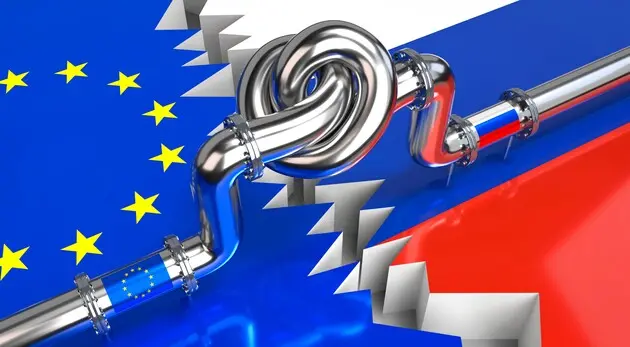




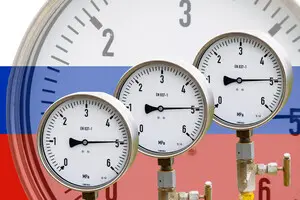
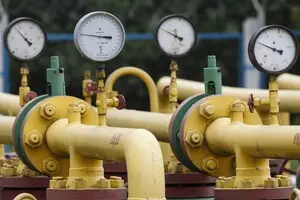

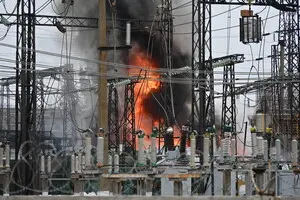
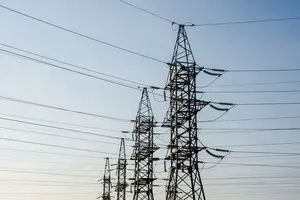
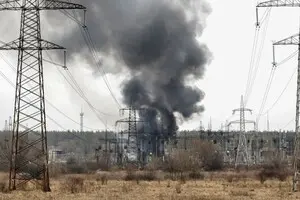
 Login with Google
Login with Google